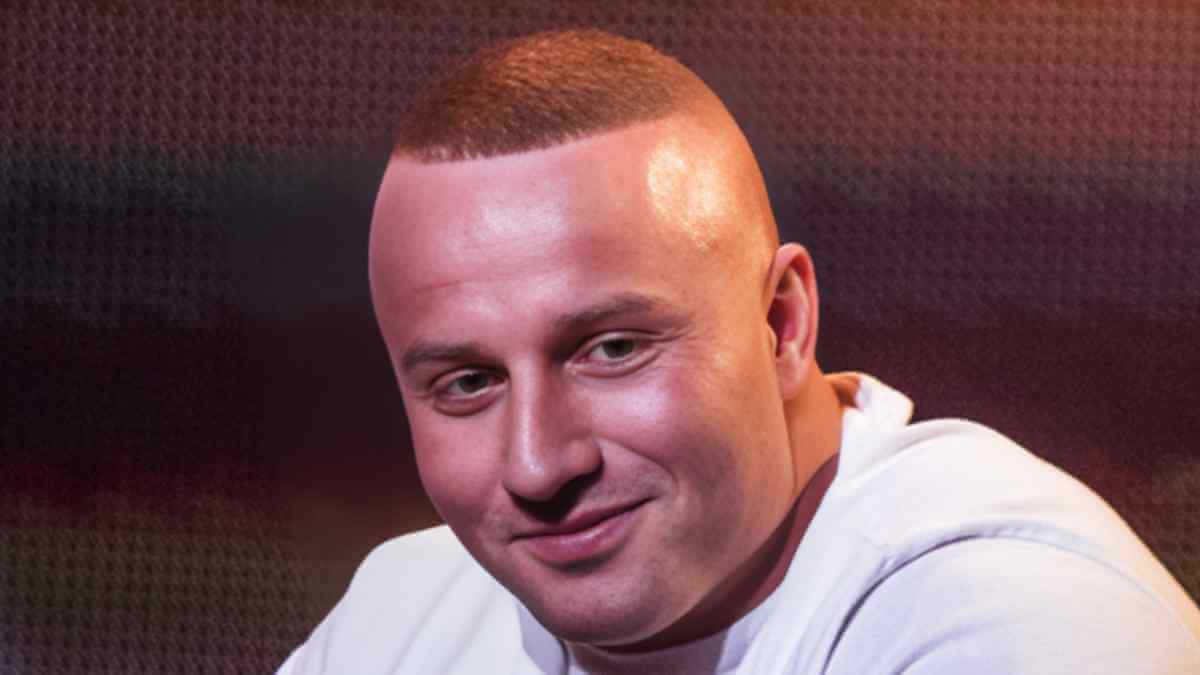Denis Zalecki: The Controversial Rise of Poland’s “Bad Boy” Fighter

The world of combat sports has always been fuelled by personalities as much as by talent. Some fighters achieve legendary status for their unmatched technical skills, others for their long list of victories, and a few for their charisma and unpredictability. One name that has quickly become synonymous with controversy, resilience, and showmanship is Denis Zalecki. Known in Poland and beyond as the “Bad Boy”, he has attracted attention not only for his fighting style but also for the sheer drama surrounding his journey. His story blends ambition, setbacks, controversy, and an unrelenting determination to remain relevant in the dynamic world of mixed martial arts and alternative combat events.
Early Life and Martial Arts Foundations
Denis Zalecki was born in Poland, a country with a strong martial arts and boxing tradition. Growing up in Toruń, he was drawn towards combat sports at an early age. While many children pursue football or basketball, Zalecki was reportedly fascinated by striking-based martial arts. He began training in Kyokushin Karate, one of the most respected forms of full-contact karate, known for its strict discipline and brutal sparring.
This foundation in karate provided him with resilience, mental toughness, and a striking base that would serve him later. However, like many fighters of his generation, Zalecki was not content to remain in a single martial art. He gravitated towards the rawer, more unfiltered formats of fighting—those that combined martial arts skill with the entertainment value of spectacle. This inclination would eventually push him into Poland’s booming freak fight scene, a phenomenon that blurs the line between sport and entertainment.
The Emergence of a “Bad Boy” Persona
Combat sports thrive on characters, and Denis Zalecki quickly realised that to stand out, he needed more than technique. He adopted the nickname “Bad Boy”, presenting himself as brash, outspoken, and unapologetically confident. His persona was built around defiance—he positioned himself not as a polished martial artist chasing titles, but as a fighter unafraid of controversy.
This branding was deliberate. In an industry where show fights and celebrity bouts attract millions of viewers, Zalecki understood that personality sells tickets. His trash talk, heated press conferences, and frequent feuds with other fighters turned him into a headline-grabber. Fans either loved him for his audacity or criticised him for his arrogance, but very few ignored him.
Professional Debut and Initial Struggles
Denis Zalecki officially stepped into the professional MMA cage with great anticipation. Fans expected his karate background and “never back down” mentality to propel him to victories. However, his debut was far from smooth.
At High League 4, he faced Artur Szpilka, a seasoned boxer who transitioned into mixed martial arts. The fight ended in disappointment for Zalecki, as he suffered a TKO loss in the first round due to a knee injury. This result highlighted the unforgiving nature of MMA, where even the most confident fighters can see their momentum halted in seconds.
Further fights did not improve his record significantly. According to public fight records, Zalecki has yet to secure a professional MMA win, with losses accumulating in high-profile events. Despite these setbacks, he remained in the spotlight, proving that his charisma was as strong a currency as victory.
Beyond MMA: Freak Fights and Alternative Formats
Unlike traditional MMA fighters who seek stability in professional organisations, Zalecki embraced the booming world of freak fights in Poland. This scene combines celebrity matchups, social media rivalries, and unconventional fight rules. Events such as Fame MMA and High League have become entertainment powerhouses, and Denis Zalecki has thrived within this environment.
He fought in boxing bouts inside cages, bare-knuckle contests, and K-1 style matches. Each event was less about polished records and more about spectacle. For example, one of his most discussed bouts came in April 2025 at Fame 25, where his fight against Filip Bątkowski ended in a disqualification after illegal strikes to the back of the head. While controversial, the incident reinforced his “Bad Boy” image—unpredictable, aggressive, and unwilling to conform.
Fighting Style and Technical Analysis
Denis Zalecki’s fighting style is defined by aggression and physicality rather than refined technical mastery. His karate background influences his stance and striking, but years of participation in alternative fighting circuits have made his approach more rugged.
-
Striking: He relies heavily on powerful punches and occasional kicks, often looking for a knockout rather than point scoring.
-
Defence: His defensive game has been criticised, particularly in MMA, where grappling and ground control often expose his weaknesses.
-
Mindset: Zalecki fights with high intensity, sometimes leading to reckless decisions. This emotional intensity contributes to both his entertainment value and his vulnerability inside the ring.
Public Image and Media Presence
One of the reasons Denis Zalecki remains a headline figure is his strong media presence. He engages heavily in social media confrontations, pre-fight theatrics, and personal storytelling. Unlike many fighters who prefer to let results speak for themselves, Zalecki makes sure his narrative is constantly visible.
He positions himself as both a fighter and a performer. Press conferences with him rarely remain calm—heated exchanges, bold predictions, and challenges to rivals are his trademark. Even outside the cage, his name continues to attract attention due to personal controversies, lifestyle choices, and outspoken opinions.
The Role of Freak Fight Culture in His Career
Poland has become a hub for unconventional combat sports formats. Organisations like Fame MMA and High League create platforms for fighters, influencers, rappers, and even celebrities to square off in front of massive audiences. This hybrid of sport and entertainment has become part of pop culture, and Denis Zalecki embodies its essence.
While critics argue that freak fights dilute the professionalism of MMA, there is no denying their popularity. Zalecki has found his niche here. His personality, combined with his willingness to take risks, makes him a reliable draw for promoters. For him, success is not measured only by win–loss records but by relevance, ticket sales, and the ability to keep fans talking.
Controversies and Challenges
No discussion of Denis Zalecki is complete without addressing controversies. From disqualifications inside the cage to public feuds outside of it, his journey has been riddled with polarising incidents.
Supporters argue that his willingness to embrace chaos is refreshing in a sport that often takes itself too seriously. Critics, however, claim that his approach disrespects the traditions of martial arts. Nevertheless, controversies have only made his brand stronger. Every setback, injury, or rule violation seems to add another layer to the “Bad Boy” legend.
The Future of Denis Zalecki
The question remains: where does Denis Zalecki go from here? His professional MMA record is far from impressive, and his technical limitations are evident. Yet, his ability to draw attention ensures that he will continue to receive opportunities.
Possible future paths include:
-
Continuing in freak fight promotions, where entertainment value outweighs win records.
-
Expanding into international celebrity fight scenes, similar to how YouTube stars have entered boxing.
-
Leveraging his media presence to build a career beyond active fighting, possibly in commentary, promotions, or influencer ventures.
Conclusion
Denis Zalecki represents a fascinating case study in modern combat sports. He is not the polished, undefeated champion that traditionalists admire. Instead, he is a polarising entertainer whose career is built on controversy, spectacle, and personality. His “Bad Boy” persona resonates with fans who crave drama as much as competition.
While his fight record may not place him among the greats of MMA, his impact on Poland’s freak fight culture cannot be denied. He embodies the evolution of combat sports into a hybrid of sport and showbusiness. Whether admired or criticised, Denis Zalecki has carved out a space for himself in the spotlight—and in today’s world, that may be the ultimate victory.



